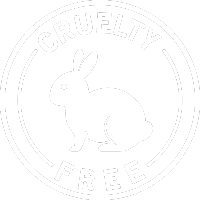From thinning edges to postpartum shedding — here’s how food, follicles, and female health are deeply intertwined.
There’s a reason your hair might start falling during stressful months, why it feels dull during your cycle, or why it refuses to grow the same way it once did. It’s not just your products — it’s your hormones. And at the root of it all? Nutrition.
In the complex ecosystem of women’s health, hair is often the first place imbalance shows up. It reacts to what’s happening inside long before you see the signs in the mirror. The good news? When you understand the connection between hormones and nutrition, you can support your hair in real, lasting ways — from the inside out.
Here’s how (and why) it matters.
1. Hormonal Fluctuations = Hair Fluctuations
Hormones like estrogen, progesterone, cortisol, and thyroid hormones directly affect the hair growth cycle. When they’re in balance, your hair stays in the anagen (growth) phase longer. When they’re not, hair may shift into telogen (shedding) or become brittle, dry, or thin.
Key hormonal moments that affect hair:
– Puberty (increased oiliness or volume)
– Menstrual cycle (monthly fluctuations in hydration, shine)
– Birth control (can trigger thinning or regrowth)
– Pregnancy/postpartum (often causes shedding 2–4 months after birth)
– Perimenopause/menopause (linked to hair thinning and dryness)
– High stress (spikes in cortisol = delayed shedding or sudden loss)
2. The Nutrients Your Hair Actually Craves
To maintain healthy hormone levels — and therefore healthy hair — your body needs consistent access to specific nutrients.
Some of the most important include:
– Protein: Hair is literally made of keratin, a type of protein. Without enough, your body prioritizes other functions.
– Iron: Low ferritin (iron storage) is a major cause of hair shedding in women.
– Zinc: Helps with follicle health and regulates oil production.
– Biotin & B Vitamins: Vital for energy production and cell growth in the follicle.
– Omega-3s: Anti-inflammatory and essential for scalp hydration.
– Vitamin D: Low levels are often linked to hair loss and poor regrowth.
– Collagen + Vitamin C: Support hair structure and help absorb iron.
Pro tip: Pair your haircare routine with hair-smart meals — wild salmon, eggs, spinach, sweet potatoes, lentils, and avocado are all follicle-friendly.
3. When Topical Isn’t Enough: Inner + Outer Care
While masks and serums support the surface, lasting change comes from combining internal nourishment with external protection.
For external care, choose formulas that support fragile hair and hormonal shifts:
– Nutree Bondox Expert: Rich in hydrolyzed keratin and essential oils, it helps reinforce the structure of hormonally weakened hair — especially useful during postpartum or stress-related thinning.
– Nutree Hair Shots: These concentrated boosters deliver antioxidants and shine enhancers to dull, tired strands — perfect for mid-cycle dullness or seasonal hair fatigue.
– Nutree Amazonliss Keratin Mask: Deep hydration to counteract hormonal dryness, especially during perimenopause or after travel.
4. Cycle-Syncing Your Hair Routine
If your mood, energy, and cravings change during your cycle — your hair does too. Syncing your routine to your hormonal phases helps:
– Follicular phase (after your period): Your hair may feel its best. Focus on gentle cleansing and minimal styling.
– Ovulation: Natural shine peaks. Use this time for photos, events, or heat styling (but protect it!).
– Luteal phase (before your period): Dryness, dullness, or oiliness may kick in. Use clarifying shampoos + hydrating masks.
– Menstruation: Hair may shed more. Skip harsh treatments. Prioritize rest, nutrition, and barrier-supporting products.
5. Signs You Need a Nutrition Reset
– You're shedding more than usual — especially from the crown or temples
– Hair looks dull, frizzy, or suddenly thinner
– You’ve recently had a baby, changed birth control, or gone through stress
– You notice breakage at mid-length or shorter pieces around your hairline
– You feel tired, sluggish, or have brittle nails and dry skin too
These are your body’s ways of asking for deeper support.
Final Word
Hair is more than a beauty feature — it’s a biomarker. A living timeline of your health, hormones, and habits. And for women, whose bodies cycle through so much every month and every decade, nutrition is not just a wellness trend. It’s foundational.
Strong hair starts at the table, continues in your supplement drawer, and is protected by the rituals you build around it. And when those layers work together — your hair doesn’t just grow. It thrives.
Let your hair reflect the strength, intuition, and rhythm within you. You don’t need to fix it. Just feed it — wisely.










